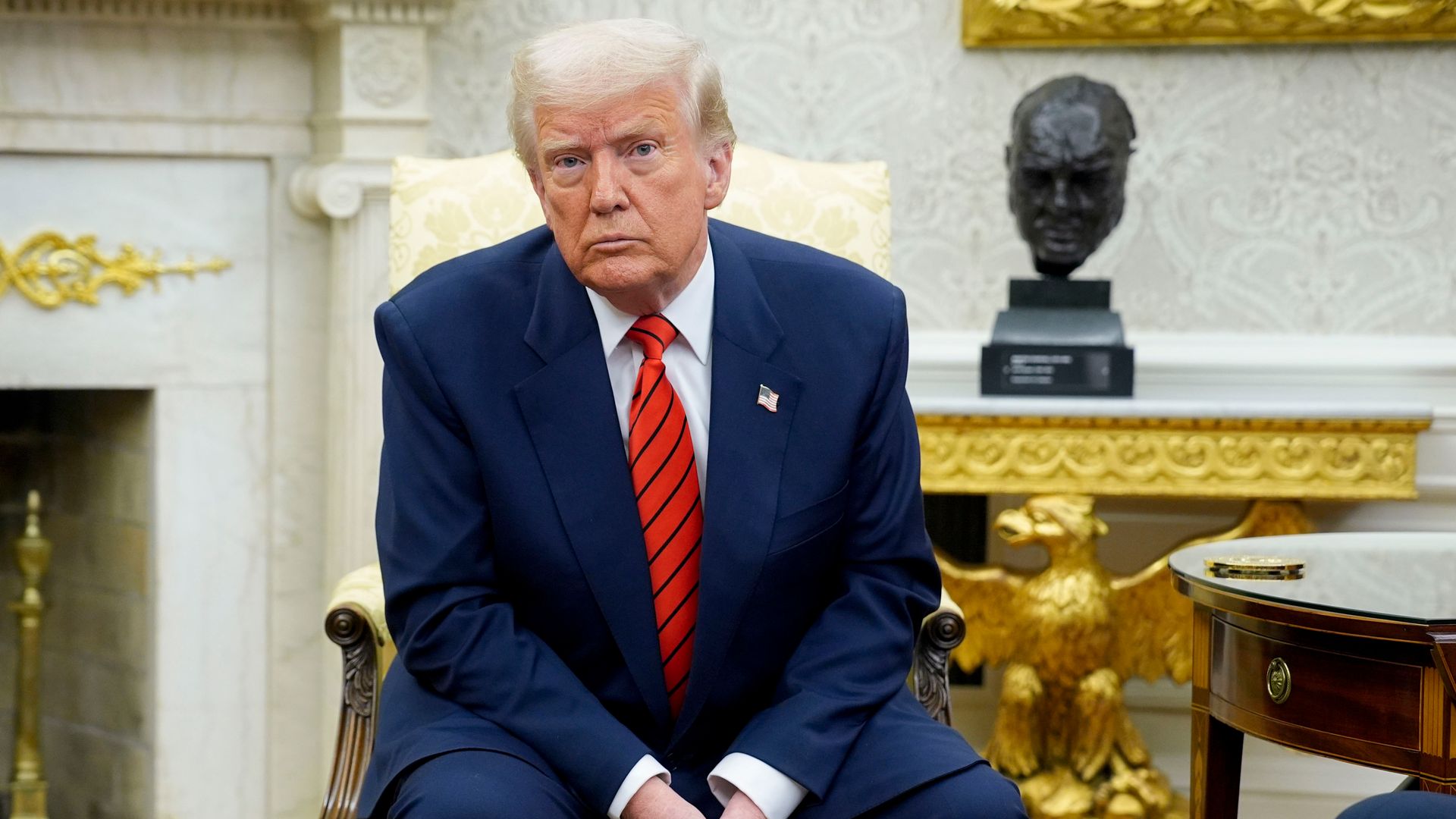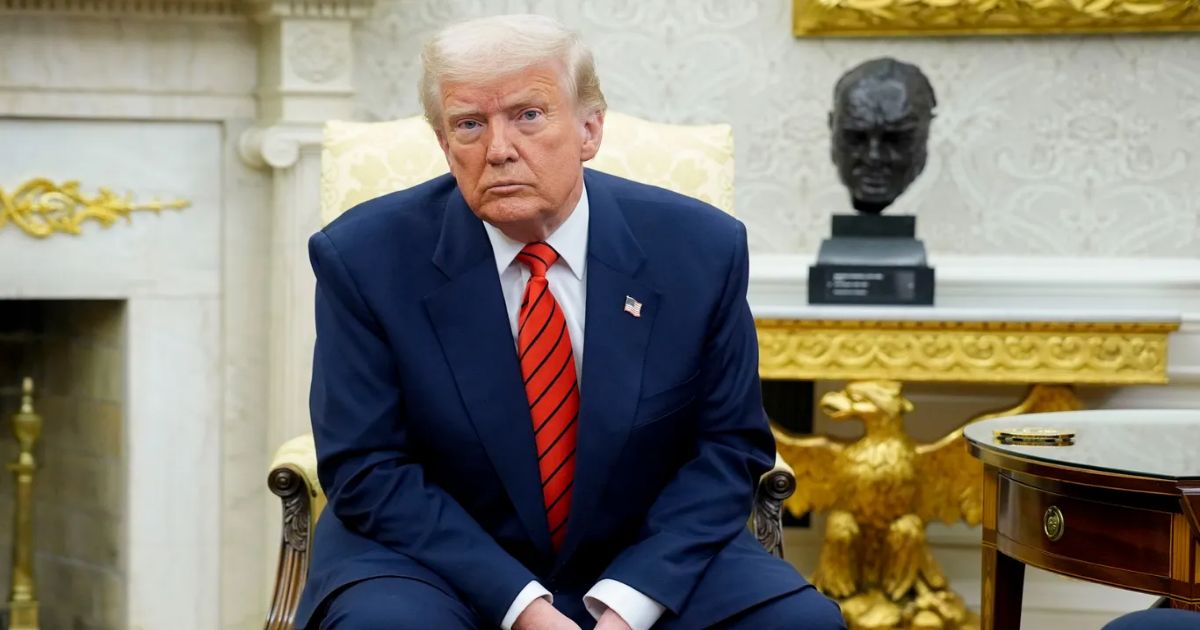 President Trump during a meeting with Mark Rutte, NATO secretary general, not pictured, in the Oval Office of the White House on Thursday, March 13. Photo: Yuri Gripas/Abaca/Bloomberg via Getty Images
President Trump during a meeting with Mark Rutte, NATO secretary general, not pictured, in the Oval Office of the White House on Thursday, March 13. Photo: Yuri Gripas/Abaca/Bloomberg via Getty Images
The Trump administration asked the Supreme Court Thursday to overturn lower court orders blocking the president’s day-one executive order attempting to end birthright citizenship.
The big picture: In the three separate cases — for which the administration filed three different petitions to the high court — judges issued nationwide injunctions blocking the order, which faces significant constitutional hurdles.
- Birthright citizen was added to the Constitution in the 14th Amendment after the Civil War to guarantee newly-freed slaves’ citizenship.
- The Supreme Court in the 1890s affirmed birthright citizenship for children born in the U.S. to parents who are not citizens.
Driving the news: The administration turned to the court with a “modest” request to restrict the preliminary injunctions to cover only those who are directly involved in the case.
- “The district courts should have limited their preliminary injunctions to the parties properly before them: the individual respondents, the identified members of the organizational respondents, and, only if they are proper parties, the state respondents,” acting Solicitor General Sarah Harris argued.
- She also aruged “near-universal birthright citizenship has created strong incentives for illegal immigration” and “led to ‘birth tourism.'”
